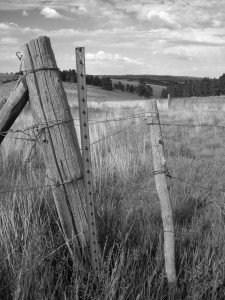It’s a question that’s been posed to most of us at one time or another. “If your house was on fire, besides your family, what would you grab?”
This past week a friend of mine called and asked me to come help him on a job. We both have a cleaning business. He also does work for insurance companies, cleaning up after house fires.
Thankfully, the people got out (barely) and no one was hurt. We always ask that question first, as we should. After that, it’s all about the stuff inside the house. What can be saved? What can’t be saved? What can’t be saved that we don’t care about? What can’t be saved that we can’t bear to part with?
I spent my time working on what furniture could be salvaged. Much of it was water stained and caked with cellulose insulation from the caved in ceiling. A benefit of cleaning is that one has time to think. Here’s what I pondered over a bucket of Odorcide and Murphy’s Oil Soap.
If I had to, I could live without most of the stuff in my house. Inconvenienced, perhaps. But could survive just fine without it. Part of the post-fire insurance process is to inventory every last item recovered. When you spend hours listening to someone with a micro-cassette recorder saying, “Box 121. One wicker basket with five plastic eggs. One blue ceramic cat. One shoe horn. One metal candle holder…” it makes you want to go home and have a huge garage sale. Most of the items in our homes aren’t needs met. They are wants satisfied. The homeowner was relieved when I showed him his Chinese rosewood table, restored and glistening with orange oil. Yet I guarantee that having escaped the fire with his very life, that table doesn’t mean as much to him as it used to.
We hold too tightly to our possessions. We are protective of our stuff. We warranty it, insure it, clean it, wax it, oil it, condition it, refinish and refurbish it, put it under glass, triple mat and frame it. But fire is an equal opportunity destroyer. It doesn’t care if its flames are licking a two dollar Tupperware bowl from Target or a priceless family heirloom. I’m a sentimental fool. I have boxes of mementos and memorabilia. Everything from marbles to matchbooks. Some I have collected on my own. Some has been given to me over the years by my parents. I’ll likely pass it on to my kids someday and hope they care about it. But if it was burned in a fire or otherwise lost, I’d still have the memories and the people in my life to share them with.
Even if, God willing, I never experience a fire in my home, the time will come when I will part company with my stuff. Either Jesus will come back or I will die. Either way, I leave the stuff behind. Remembering that on a regular basis will help me: A) not accumulate so much stuff; B) not become too attached to my stuff; and C) focus on people instead of stuff.
Corrie Ten Boom, an amazing Christian woman who spent her life investing in people (including her time in a Nazi concentration camp) once said, “I’ve learned to hold things loosely, because it hurts too much when God pries my fingers apart.”
As you walk about your house this week, thank God for what you have. Ask yourself what you have that you really don’t need. Your clutter might meet another person’s need. Less clutter means less stuff. Less stuff means more time to invest in people who need what God has gifted you to offer them.
Items salvaged from a fire can be thoroughly cleaned and ozoned and made seemingly new. But as my friend said to me as we looked at our work, “Years from now on a humid day that chair will smell like smoke again and it’ll remind them of the fire.”
Maybe that’s not a bad thing.
“Do not store up for yourselves treasures here on earth where moth and rust destroy and thieves break in and steal. But store up for yourselves treasures in heaven where moth and rust do not destroy and thieves do not break in and steal. For where your treasure is, there will your heart be also.” – Matthew 6:19-21
Todd A. Thompson – January 12, 2006



